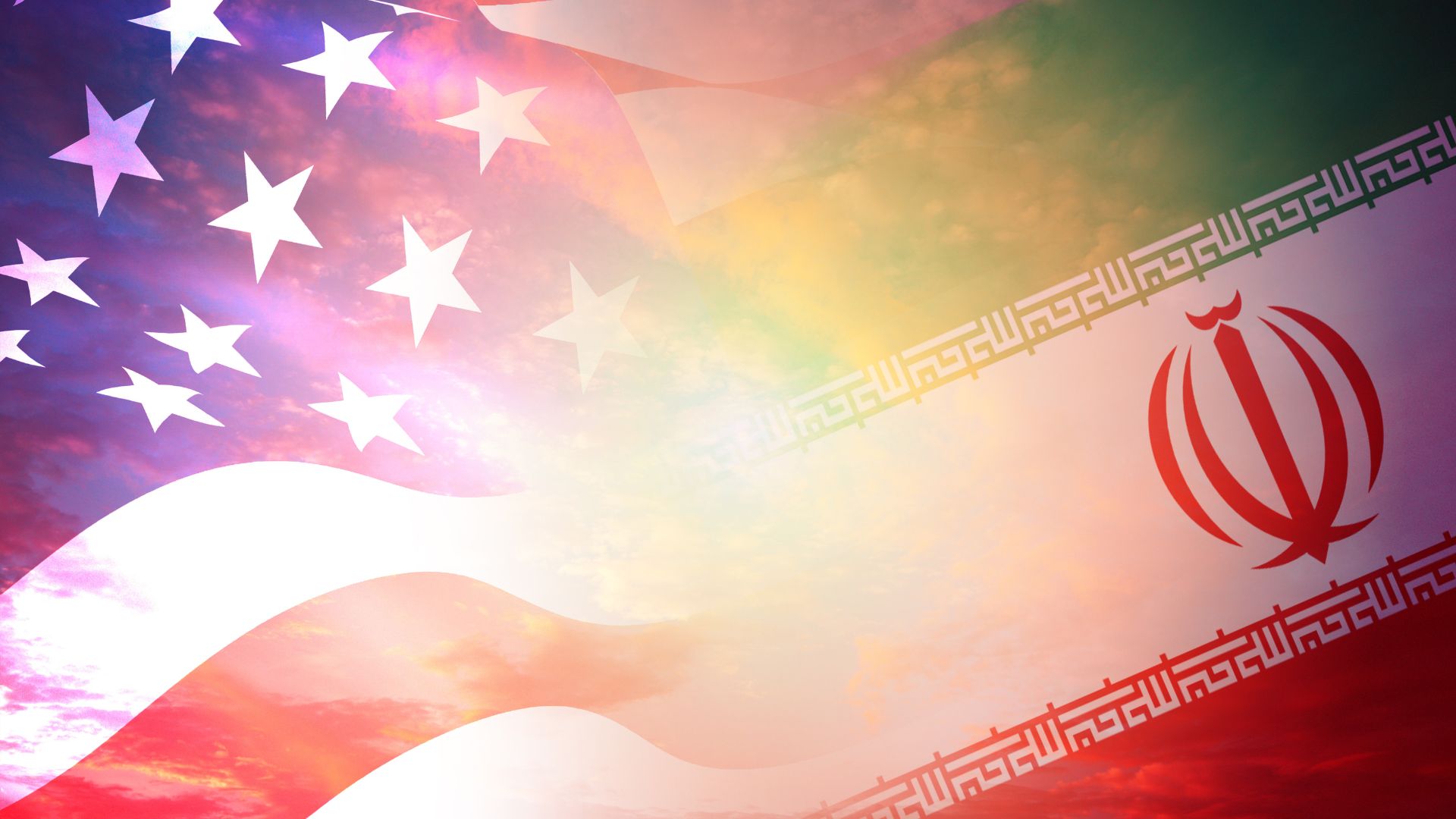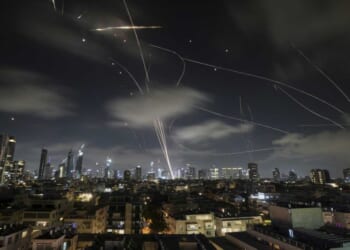
President Donald Trump confirmed Thursday that Iran may be close to signing a new nuclear agreement, following remarks by a top Iranian official indicating Tehran is prepared to make significant concessions in exchange for sanctions relief.
The comments come after months of diplomatic engagement and amid mounting pressure on the Iranian regime from both domestic and international fronts.
Trump referenced the development during remarks in Qatar, stating, “You probably read today that Iran has sort of agreed to the terms. They’re not going to be making any nuclear dust in Iran. And we’ve been strong. I want them to succeed. I want them to end up being a great country, frankly, but they can’t have a nuclear weapon. … And people are getting close to maybe doing a deal.”
Trump confirms reports that Iran have “sort of agreed to the terms” that they cannot have nuclear capabilities!
Trump confirms he is currently in “very serious negotiations with Iran, for long-term peace”!
Trump also highlights how “many people” want war with Iran, but that he… pic.twitter.com/rVSkScNRIN
— Clandestine (@WarClandestine) May 15, 2025
Trump’s Sovereign Wealth Fund: What Could It Mean For Your Money?
The comments follow a Wednesday interview between NBC News and Ali Shamkhani, a top nuclear and national security adviser to Iranian Supreme Leader Ayatollah Ali Khamenei.
This Could Be the Most Important Video Gun Owners Watch All Year
In that interview, Shamkhani stated that Iran was prepared to sign an agreement limiting uranium enrichment to civilian levels and committing to never pursuing nuclear weapons—provided that all U.S. economic sanctions are lifted.
“Yes,” Shamkhani said when asked whether Iran would sign such a deal immediately.
He emphasized that the agreement would also include international inspections and the dismantling of highly enriched uranium stockpiles.
“It’s still possible. If the Americans act as they say, for sure we can have better relations,” he added. “It can lead to a better situation in the near future.”
The latest round of negotiations between the United States and Iran took place in Muscat, Oman, with talks led by U.S. Special Envoy Steve Witkoff and Iranian Foreign Minister Abbas Araghchi.
Witkoff described the discussions as “encouraging,” while Araghchi characterized them as “difficult but useful.”
Despite public overtures toward a deal, tensions remain high.
Iranian President Masoud Pezeshkian criticized Trump during a televised address on Wednesday, saying, “He thinks he can come here, chant slogans, and scare us. For us, martyrdom is far sweeter than dying in bed. You came to frighten us? We will not bow to any bully.”
Shamkhani also expressed skepticism about Trump’s sincerity, telling NBC, “He talks about the olive branch, which we have not seen. It’s all barbed wire.”
Opposition from Capitol Hill may also complicate the deal’s future.
On Wednesday, 49 Republican senators—every GOP member except Sen. Rand Paul (R-KY)—signed a letter led by Sens. Pete Ricketts (R-NE) and Ted Cruz (R-TX) urging the Trump administration to hold firm on previous commitments requiring Iran to permanently abandon uranium enrichment capabilities.
“You and your administration have therefore correctly drawn a redline against any deal that allows Iran to retain any enrichment capability,” the letter stated.
“We cannot afford another agreement that enables Iran to play for time, as the JCPOA did.”
A similar letter in the House, signed by 177 Republican representatives, echoed those concerns.
Araghchi responded that Iran would not abandon enrichment entirely.
“Enrichment is an issue that Iran will not give up, and there is no room for compromise on it,” he said.
“However, its dimensions, levels, or amounts might change for a period to allow confidence-building.”
The negotiations have also reportedly created friction between President Trump and Israeli Prime Minister Benjamin Netanyahu.
Netanyahu has voiced strong opposition to any agreement that allows Iran to retain enrichment capabilities and has pushed for military action.
Reports indicate the Trump administration has recently sidelined Israel in several regional diplomatic efforts.
Trump’s current Middle East tour has notably excluded a visit to Israel.
His administration has independently brokered a ceasefire deal with the Houthis and arranged for the release of the last American hostage held by Hamas—both without consulting the Israeli government.
Former U.S. Ambassador to Israel Dan Shapiro said this week that Israel is growing uneasy with the Trump administration’s shift in tone.
“It’s not that he’s not supportive, but he’s made a number of decisions, or at least forecast other decisions that are clearly at odds with their preferences, and sometimes without any consultation,” Shapiro told the Washington Examiner.
Iran’s willingness to engage is likely driven by growing economic and strategic instability.
Israeli airstrikes in 2024 crippled Hezbollah leadership in Lebanon, and the collapse of Syria’s Assad regime in December removed a key regional ally.
The country is also facing its worst economic crisis in modern history, which President Pezeshkian recently described as more severe than the Iran-Iraq War.
Analysts suggest these pressures may be compelling Tehran to pursue an agreement with Washington despite years of hostile rhetoric.
A final deal has not yet been signed, but both sides appear to be inching closer to formal terms.
Connect with Vetted Off-Duty Cops to Instantly Fulfill Your Security Needs

![Trump Signals Iran Breakthrough, Netanyahu Reportedly Sidelined [WATCH]](https://www.right2024.com/wp-content/uploads/2025/05/Trump-Signals-Iran-Breakthrough-Netanyahu-Reportedly-Sidelined-WATCH-750x375.jpg)

![‘It’s a Recipe for a Hundred Years of National Dominance’: Stephen Miller [WATCH]](https://www.right2024.com/wp-content/uploads/2025/05/Stephen-Miller-Completely-Obliterates-CNN-Host-Over-Her-Illegal-Immigration-350x250.jpg)

![Trump Posts Hilarious Pope Meme, Leftists Immediately Melt Down [WATCH]](https://www.right2024.com/wp-content/uploads/2025/05/Trump-Posts-Hilarious-Pope-Meme-Leftists-Immediately-Melt-Down-WATCH-350x250.jpg)

![Wild Road Rage Brawl Erupts in Milwaukee [WATCH]](https://www.right2024.com/wp-content/uploads/2025/05/Road-Rage-Turns-Violent-in-Oregon-Minivan-Mows-Down-Motorcyclist-350x250.jpg)








